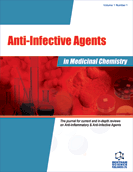Abstract
In the light of emerging bacterial-resistance, novel antimicrobial agents are needed to combat infectious diseases. A group of post-translationally modified peptides called lantibiotics frequently appear from screening of active natural compounds. Many lantibiotics target Lipid II, the essential precursor of bacterial cell wall synthesis. A recently characterised Lipid II-binding motif, the pyrophosphate cage, demonstrates a unique way of targeting bacteria and its conservation amongst many lantibiotics makes it a promising template for novel antibiotics. Evidence suggest the existence of additional Lipid II binding motifs of lantibiotics, the identification of which will rely on a better structural understanding of these unique peptides and their mode of actions. Here we will review the current progress of structural studies on lantibiotics and, more specifically, the Lipid II binding motifs. This may aid the development of lantibiotic structure-based drug design.
Keywords: Lantibiotics, Lipid II, cell wall precursor, pore formation, conformational change, pyrophosphate cage, NMR, spectroscopy, structure-based drug design
 5
5





















